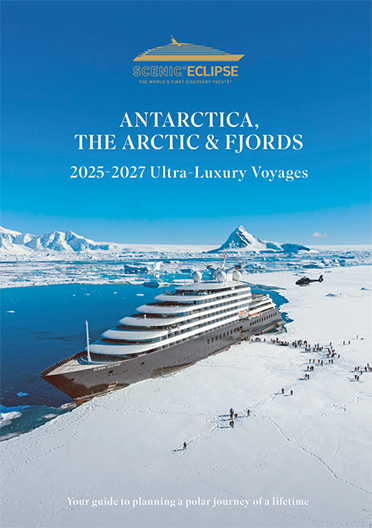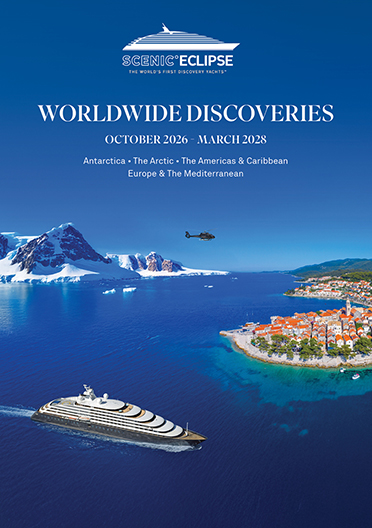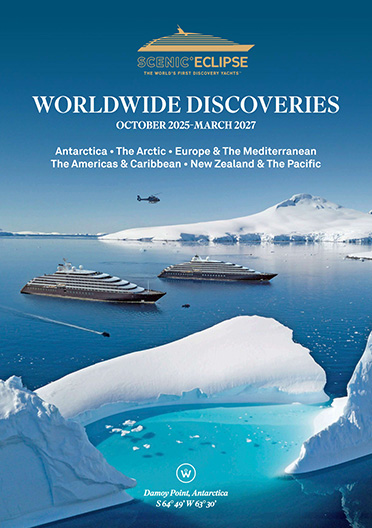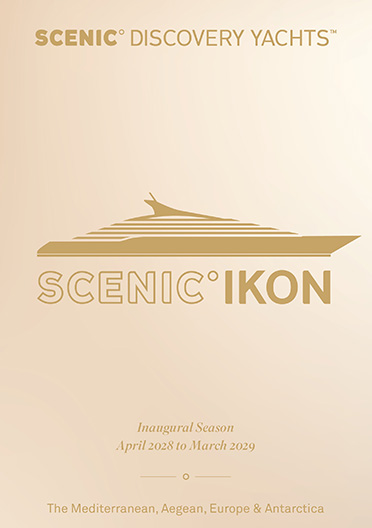Some journeys are defined not just by the destination, but by those who walk beside us.
This summer, as Scenic Eclipse II charts a course through the vast wilderness of East Antarctica and the Ross Sea, guests will step into the pages of polar history in the company of two extraordinary explorers whose lives have been shaped by ice, endurance, and purpose.
We are honoured to welcome Robert Swan OBE, the only person in history to walk to both the North and South Poles, and his son Barney Swan, a passionate advocate for our planet’s future, on the 24 day Antarctica's Ross Sea: Majestic Ice & Wildlife voyage departing on 29 January 2026 from Christchurch - a journey which will be a true once-in-a-lifetime experience.
Together, this remarkable father-and-son duo embody the legacy and future of polar exploration: one shaped by footsteps across untouched ice, the other driven by a bold vision for sustainability and global impact.
To sail alongside the Swans is not merely to witness Antarctica - it is to feel its pulse. From the frozen silence of Shackleton’s hut to the haunting relics of Scott’s final expedition, the voyage will be a living tribute to courage, curiosity, and conservation. Through immersive on board lectures and personal stories shared beneath Antarctic skies, Robert and Barney will bring to life the triumphs and trials of polar discovery, and what it means to protect these last wild places.
Cruising from Timaru (via Christchurch) return, this is more than a voyage - it is an invitation to stand where legends stood, and to learn from those continuing their legacy in the most meaningful way.
Read on to learn about Robert and Barney Swan’s reflections on legacy, learning, and the deep call of the ice.
Robert Swan OBE, Polar Explorer & Founder of the 2041 Foundation
Robert Swan is one of the most renowned explorers of our time and the first person in history to walk to both the North and South Poles. With a career spanning over four decades, he has dedicated his life to polar preservation and climate action.
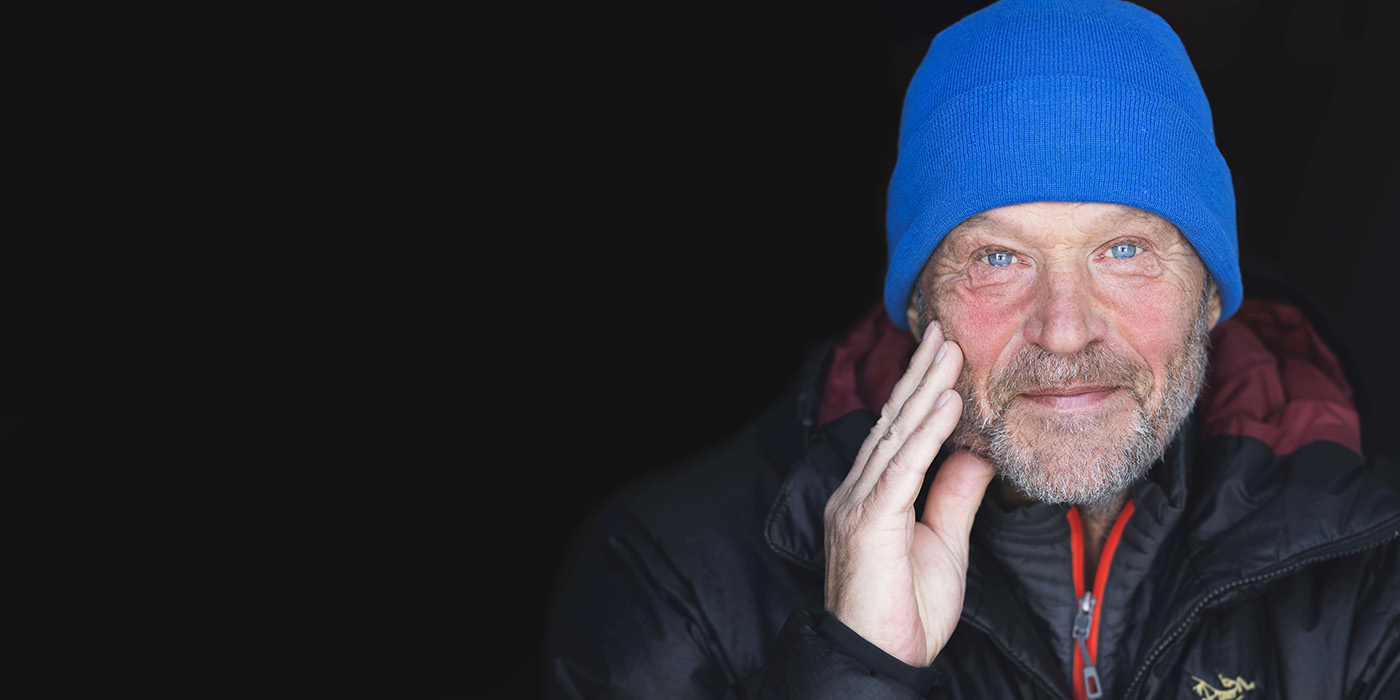

In 1985, he began his South Pole journey after wintering beside Scott’s Hut and later founded the 2041 Foundation — named for the year the Antarctic Treaty could be reviewed — to promote renewable energy and protect the continent’s future. Robert will join the Antarctica’s Ross Sea: Majestic Ice & Wildlife voyage on 29 January 2026, offering expert insights and lectures as part of the special guest program.
What inspired your remarkable journey to become the first person to walk to both the South and North Poles, and what kept you going along the way?
I saw a film at the age of 11 about the real explorers Robert Falcon Scott, Ernest Shackleton, and Roald Amundsen. On that day, I vowed to walk to the South Pole in their footsteps. Even at that age, I was captivated by the idea that nobody owns Antarctica.
Few people have ever walked to both the North and South Poles. Looking back, what was the most profound personal challenge you endured during these expeditions?
In those days there were no cruise ships and the only way to reach the Antarctic was to buy a ship, winter over at Cape Evans as Scott did, and then go to the South Pole on foot. Raising what would be equivalent to $15 million today took seven years - that was a real battle.
Also, on the 'Footsteps of Scott’ expedition we had no radio, no GPS, no communications at all. We navigated as Scott did to the Pole - with sun sextant and a watch. No backup at all. Quite a challenge.
To have Jacques Cousteau as your patron and the Queen personally send you off is truly remarkable. How did such prestigious support shape both the significance and the course of your expedition?
We had great support from the son of Captain Scott, Sir Peter Scott, founder of the WWF, and Lord Shackleton, son of Ernest Shackleton. Along with Her Majesty the Queen Elizabeth II and Jacques Cousteau, they gave us some credibility to raise the money and make it happen.
Also, we promised them all that we would remove all our rubbish and equipment from the Antarctic. After the loss of the ship, a team spent another year at Cape Evans and eventually I got another ship in to deliver on our word.
What inspired your decision to return to East Antarctica, and why did you choose to make this journey on board Scenic Eclipse II?
After 40 years, I wanted my son to join me in revisiting this extraordinary historical place. Another key reason was Jason Flesher, Scenic’s Director of Discovery Operations. He assured us that Scenic is genuinely committed to sustainability - something that’s non-negotiable for us. We have a huge amount of respect for Jason. He taught Barney many of the mountaineering skills that enabled him to reach the South Pole and complete his own remarkable journey. Jason’s not just a brilliant teacher; he’s a great friend. Supporting him and the work he’s doing with the entire operation - especially around sustainability - is something we’re truly excited about.
The Antarctica's Ross Sea: Majestic Ice & Wildlife voyage will return you to Scott’s Hut for the first time since your historic expedition in 1985 and 1986. What emotions or reflections do you anticipate as you revisit the place where your journey to the South Pole began?
This will be a moment to journey back in time — and to share that with my son and the guests on board. I can’t wait! We lived there for a year in our own huts, just a few yards from Captain Scott’s hut. Then we set off for the South Geographic Pole, with no communications. We didn’t know what was going on in the world. And after 70 very tough days, we arrived at the South Geographic Pole.
The story of your ship being crushed and sunk as you reached the South Pole is incredible. How did you cope in that moment?
The first words we heard from the outside world when we arrived at the South Geographic Pole were that our little ship, Southern Quest, had sunk. I’ll explain on board the reasons why we lost her, but the only thing that truly mattered was that all hands were safe. Safety is always the top priority.
After four decades, do you expect to see noticeable changes in Antarctica’s environment?
Antarctica is on the frontline of climate change. We’re already seeing changes - even on the snow surfaces that Barney and I crossed on foot during our recent South Pole expedition. Our mission now is to ensure that from this moment on, Antarctica is left alone and preserved as a continent devoted to science and peace. I can’t wait to return. Please, join us. It’s going to be amazing.
What insights or stories can guests look forward to from your lectures onboard?
I will tell the story from the age of 11 until, at the age of 67, I achieved - with the support of Barney - the crossing of the Antarctic landmass on foot. The story of the North Pole and the story of the 2041 mission to preserve the Antarctic.
What makes East Antarctica such a unique and meaningful destination for you personally, especially after 40 years?
East Antarctica is a place most people never get to visit. It’s been 40 years since I was last there - and this will be my first time back to that part of the continent. To go to East Antarctica is to physically walk in the footsteps of the true explorers. I consider myself to be a link between the golden age of exploration and the modern age; I simply followed in the footsteps of Scott, Shackleton, and Amundsen to the South Pole.
But this region brings history to life… you feel it in the landscape. And it’s not just about history. We’ll also be visiting extraordinary places like the McMurdo Dry Valleys by helicopter. This is a rare opportunity to experience a part of the world that very few people ever get to see.
“Whether skiing 1,000 kilometres to the South Pole, sailing across the South Atlantic in a four-hours-on, three-hours-off rotation, or facing other endurance feats, Dad has been a constant reference point. He’s shown me that maintaining a steady attitude is critical to overcoming any challenge.” Barney Swan, Explorer & Environmental Advocate.
Barney Swan, Explorer & Environmental Advocate
Barney Swan is a modern polar explorer and passionate environmental advocate, following in the formidable footsteps of his father, Robert Swan. In 2018, he trekked to the South Pole alongside his father and has since led expeditions and educational initiatives focused on sustainability and responsible exploration.
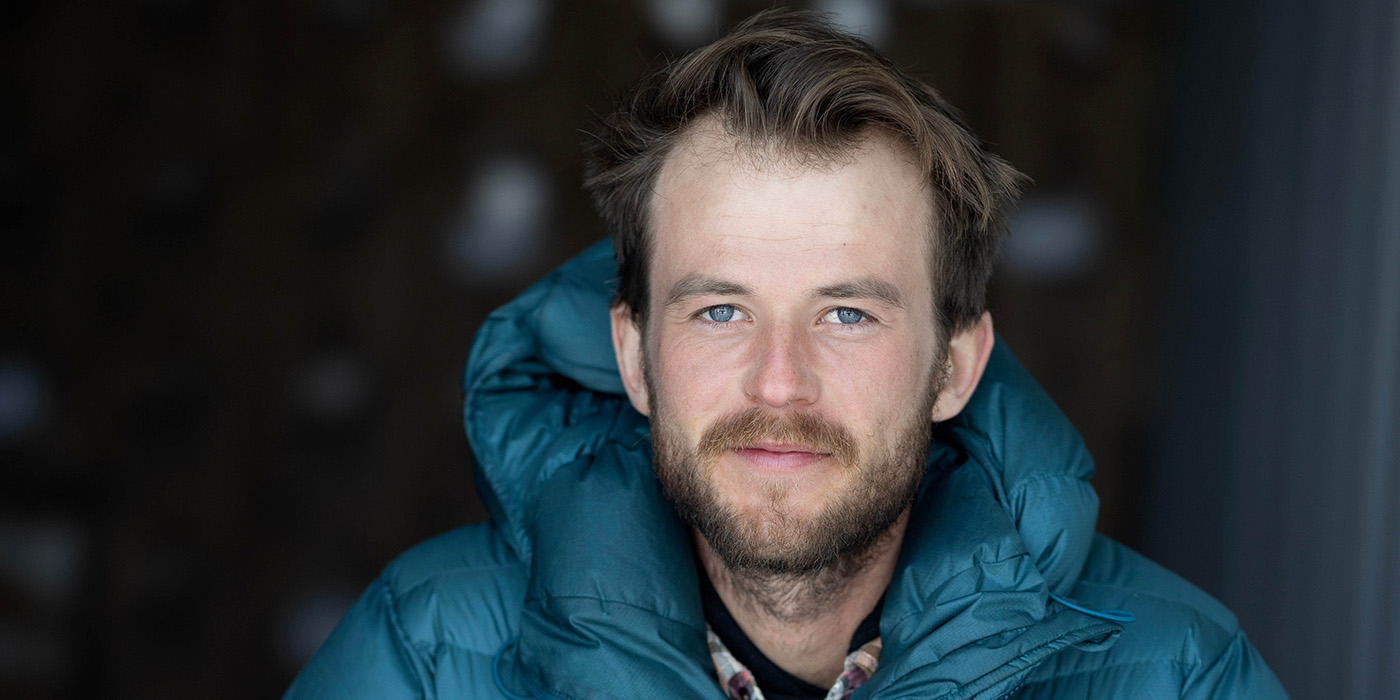

As the founder of Australian-based non-profit ClimateForce, Barney works to empower practical climate solutions and inspire future environmental leaders. He will join the Antarctica’s Ross Sea: Majestic Ice & Wildlife voyage on 29 January 2026, sharing his unique perspective as the next generation of polar explorer during a series of onboard guest lectures and immersive experiences.
You’ve walked alongside your father in Antarctica and carved your own path through ClimateForce. How have these - and your other shared adventures - helped shape your mission to tackle climate change?
I’ve learned many life lessons through sharing time in the outdoors with Dad — in the oceans, polar regions, deserts, and tropical locations. Since I was young, Dad would always say, half-jokingly, “march or die.” As much as it was said in jest, it was a reminder of his legacy and the reality of his Footsteps of Scott expedition in the ‘80s.
Whether skiing 1,000 kilometres to the South Pole, sailing across the South Atlantic in a four-hours-on, three-hours-off rotation, or facing other endurance feats, Dad has been a constant reference point. He’s shown me that maintaining a steady attitude is critical to overcoming any challenge.
I’ve tried to take that same “no excuses” approach to my work in Queensland’s Daintree rainforest - setting up an off-grid business from scratch. We all have a shared responsibility to leave places better than we found them, and I’m now learning that there’s a balance to working smart, not always hard, to serve both the environment and people.
Why do you believe Antarctica remains such a critical focus in today’s climate conversation, and what role do you see this expedition playing in that?
I think there’s a very real and urgent truth: our planet is under pressure right now from a variety of different factors. And all of us have a shared responsibility to make sure that seven generations from now, we still have a liveable planet.
This expedition offers a unique, first-hand experience of not only my father's legacy - his work to preserve Antarctica over the last 30 years - and, as a millennial, my own contribution. I’ve been managing a charity here in Australia called ClimateForce focused on giving back to native landscapes, working with Indigenous communities, and ensuring that farmers, local councils, and everyday citizens all have a role to play in that mission
What is one memory from your South Pole trek with your father that captures the spirit of exploration and resilience?
Day 45: total white-out. -40°C wind chill. I couldn’t see my own skis. I had frostbite on my toes and felt like I was a monkey bashing cymbals together. It was a tough moment - but also a powerful reminder of choice, of why I was there, and the importance of following through with what you commit to.
That day reminded me of the grit we all have within us when we push into unfamiliar places. And globally, it made me reflect on the millions of people who wake up each day without a choice. That’s what drives me forward.
What does going back to Antarctica with your father mean to you?
It’s incredibly special - both personally and generationally. Ever since I was learning to speak, I’ve listened to Dad talk about the extraordinary East Antarctic landscape and its deep historical significance. Now, for the first time, I get to experience it with him side by side.
It’s a chance to relive some very meaningful places and moments with my father, but also to experience East Antarctica for myself. For the Scenic Eclipse II guests and the expedition team, I think it’s a powerful way to show that legacy isn’t just something from the past. Here, two very different generations are coming together to honour history while also shaping a future we can be proud of. It’s proof that old-school adventure and new-school tech can work hand-in-hand.
This is an exceptionally unique experience for us as a family — and hopefully, for those joining us in January.
Is there a particular area of research or discovery you’re most excited to explore during this expedition?
Blue-ice microbes have me buzzing. These tiny critters offer big clues about ice sheet health. We use e-DNA on our farm for soil and water testing, so understanding that same science applied in Antarctica will be a fascinating crossover.
How does it feel to be sailing with your mentor Jason Flesher again, and what does it mean to be on this expedition with him now?
Full circle. Between 2011 and 2016, Jason taught me how to mountaineer and lead with confidence in the outdoors. Our time together - from Antarctica to the Eastern Sierras in California and up into Norway - paved the way for some pretty remarkable milestones in my life.
It’s been far too long since we’ve been under open skies together, so I’m really looking forward to sharing some laughs and finding quiet moments with him to listen to the ice and enjoy the silence.
How does departing from New Zealand, rather than Patagonia, add to the significance of this journey?
Well, being a proud Australian, it’s going to be very unique not having to depart from Patagonia. We’re retracing the original steps of not only Scott, Amundsen, and Shackleton, but also my dad and his fantastic crew on the Footsteps of Scott expedition - all of whom departed from New Zealand. So as an Australian, I’m excited to gain a different perspective on the other side of the world and see landscapes I’ve never seen before.
What makes East Antarctica such a unique and personal experience compared to the Antarctic Peninsula?
East Antarctica is a whole other beast compared to the Peninsula. It’s far more isolated, far more remote. There won’t be any sight of other vessels. From what I understand, it’s a much more intimate experience, allowing us to get very close to the true heart of Antarctica - which I’m exceptionally excited about.
On a personal note, with the stresses of family, mental health challenges, and people questioning their sense of place in the world right now, being still and quiet in Antarctica — away from technology, notifications, and busy city life — is a chance to disconnect, reconnect, and figure out what the next half decade looks like for you, your families, and the nations you represent.
What key messages do you hope guests take away from your lectures during this voyage?
- You’ve got power. Pick one way to create a more resilient future — and commit to it.
- Healthy nature = healthy economy. Reefs, rainforests, and farms keep our economies afloat.
- Teamwork wins. When First Nations knowledge, migrant drive, and farmer skills are combined - magic happens.
- Intergenerational collaboration is essential - in our families, in business, and across nations. Walk the talk.
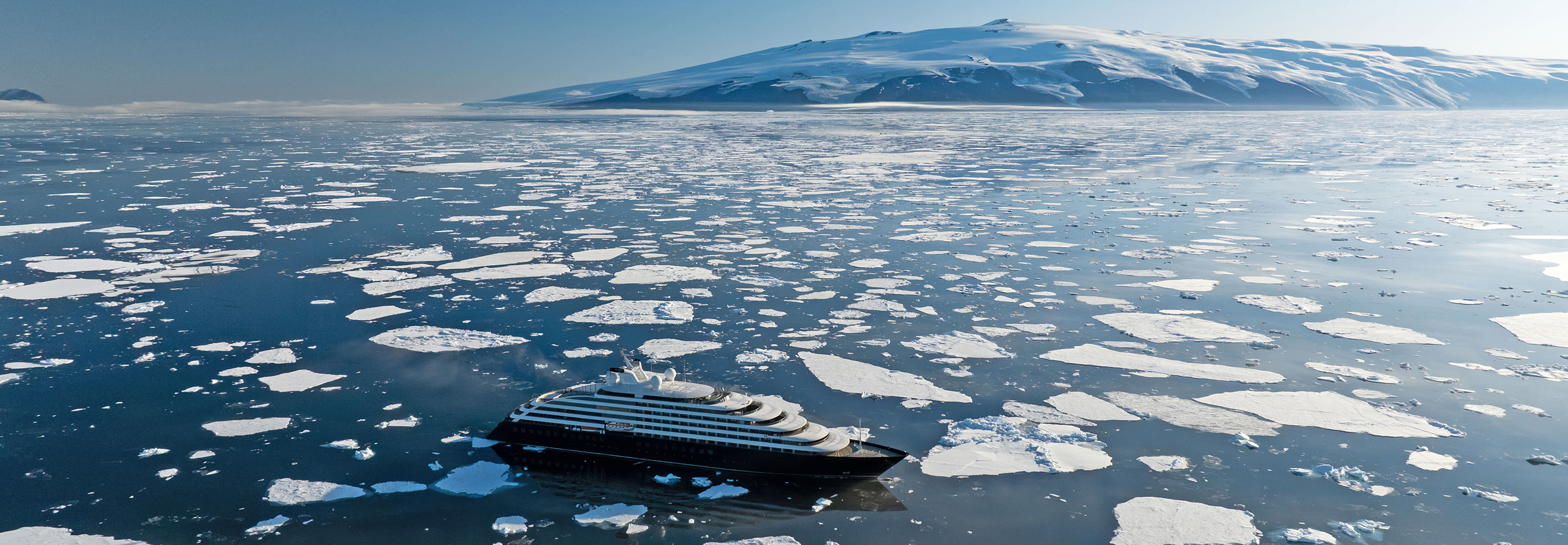

Vast, untamed, and hauntingly beautiful, East Antarctica and the Ross Sea are among the planet’s most remote and awe-inspiring places. To voyage here is to step into history - to walk where Mawson, Scott and Shackleton once stood, witness wildlife few have seen, and explore icebound realms beyond imagination.
With only one departure on this route that has been years in the making, this is a rare opportunity to join Scenic Eclipse II for an unforgettable expedition.
Experience the McMurdo Dry Valleys, weather permitting, with a helicopter^ landing for a short hike and exploration of this unique landscape, plus opportunities to land on or fly over the Ross Sea Ice Shelf.
- Encounter Adélie and Emperor penguins, Ross Sea seals, whales and seabirds in their natural environment.
- Take part in expert-led Zodiac, kayak or stand-up paddleboard~ excursions or guided hikes, all curated by the returning polar Discovery Team.
- Be one of the very few to journey into the Ross Sea — a seldom-visited frontier, explored by fewer ships each year.
East Antarctica is not a destination. It’s a calling. Answer it on board Scenic Eclipse II, where unmatched access and transformative experiences await.
Secure your suite now — for the last planned Scenic Eclipse II voyage in East Antarctica.
You might also like...
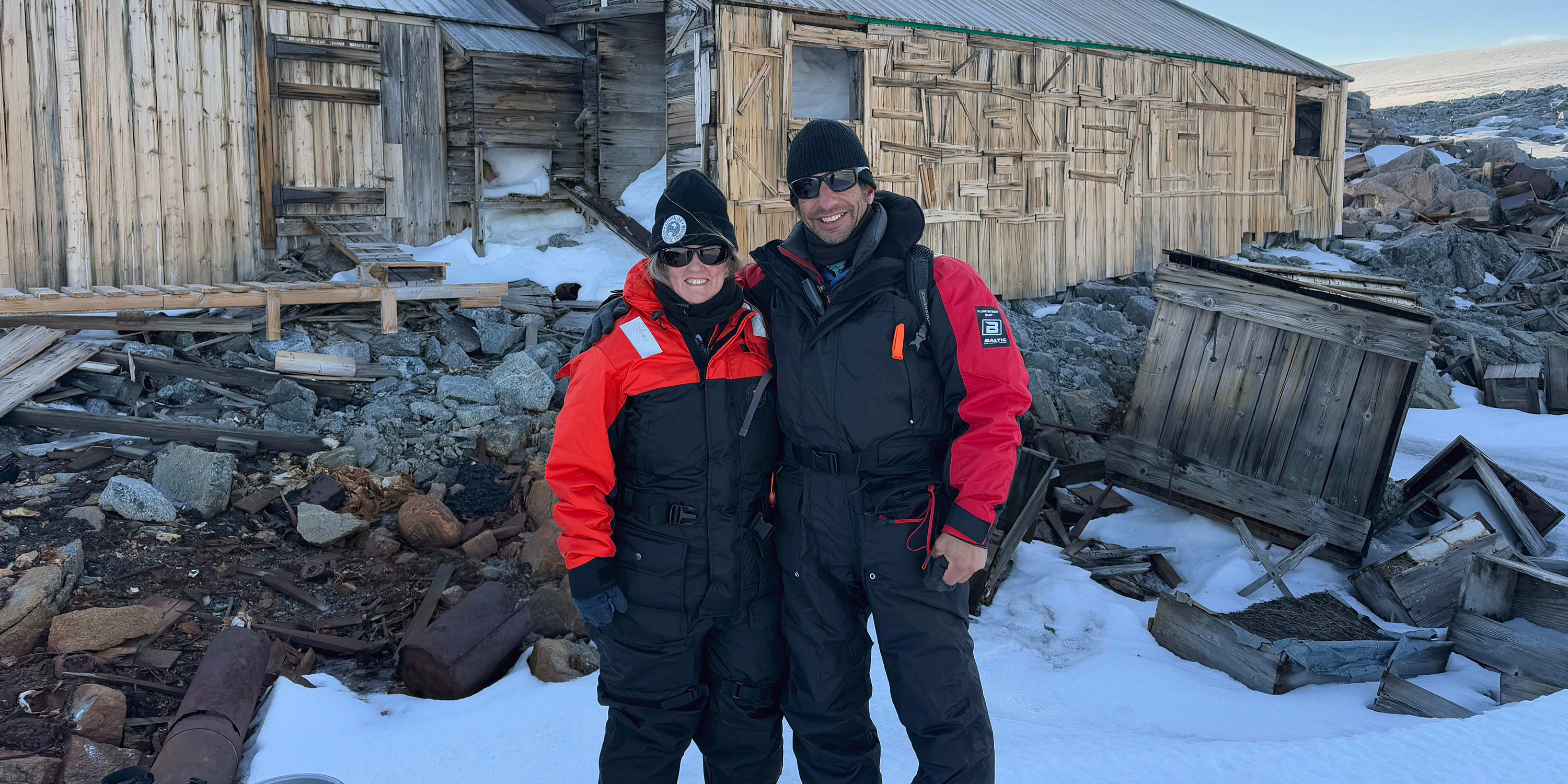
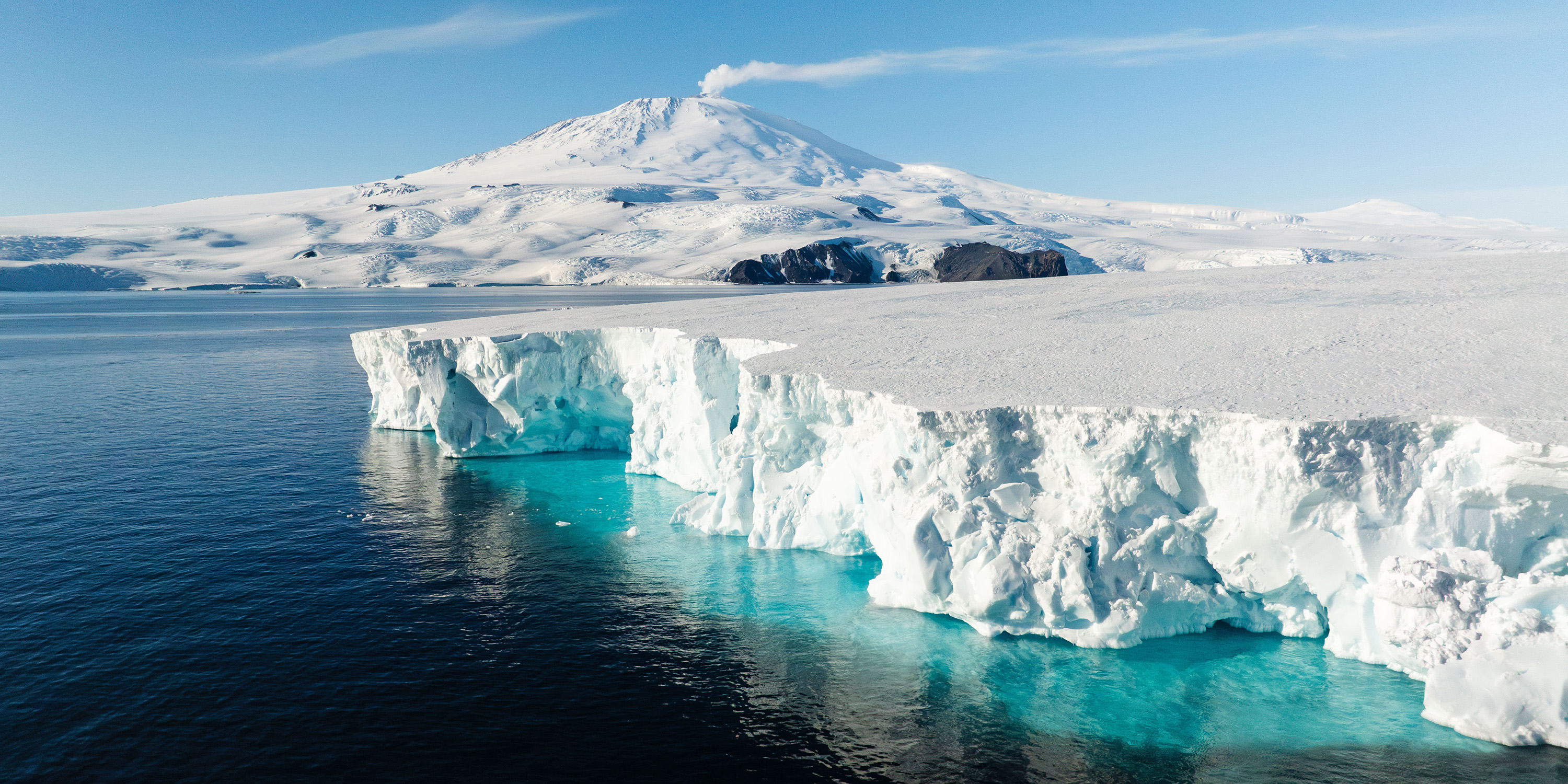
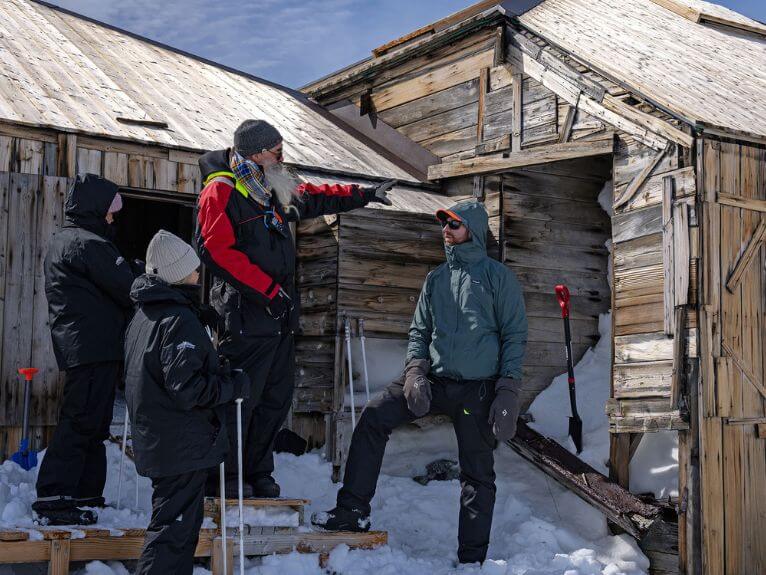
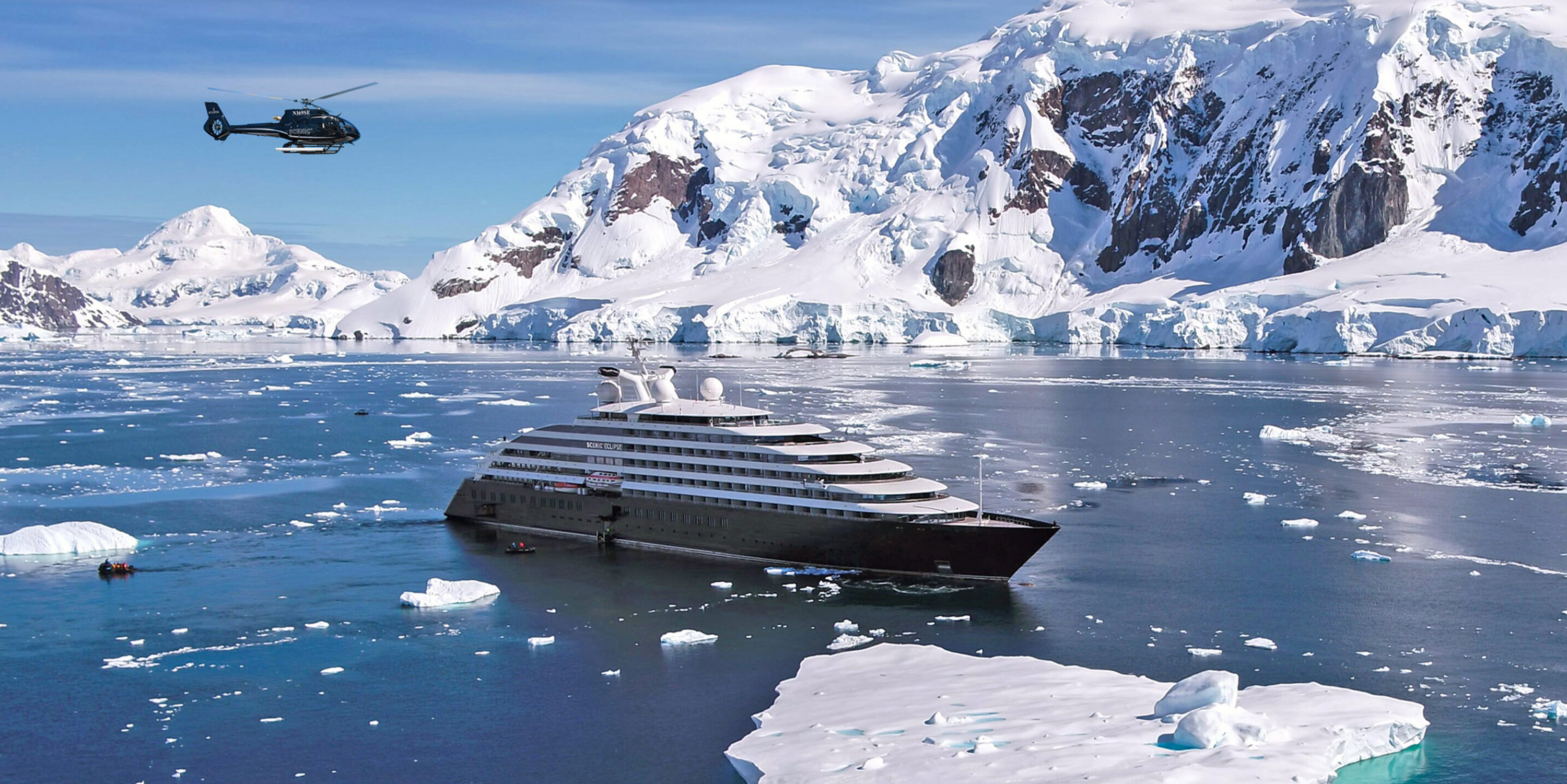
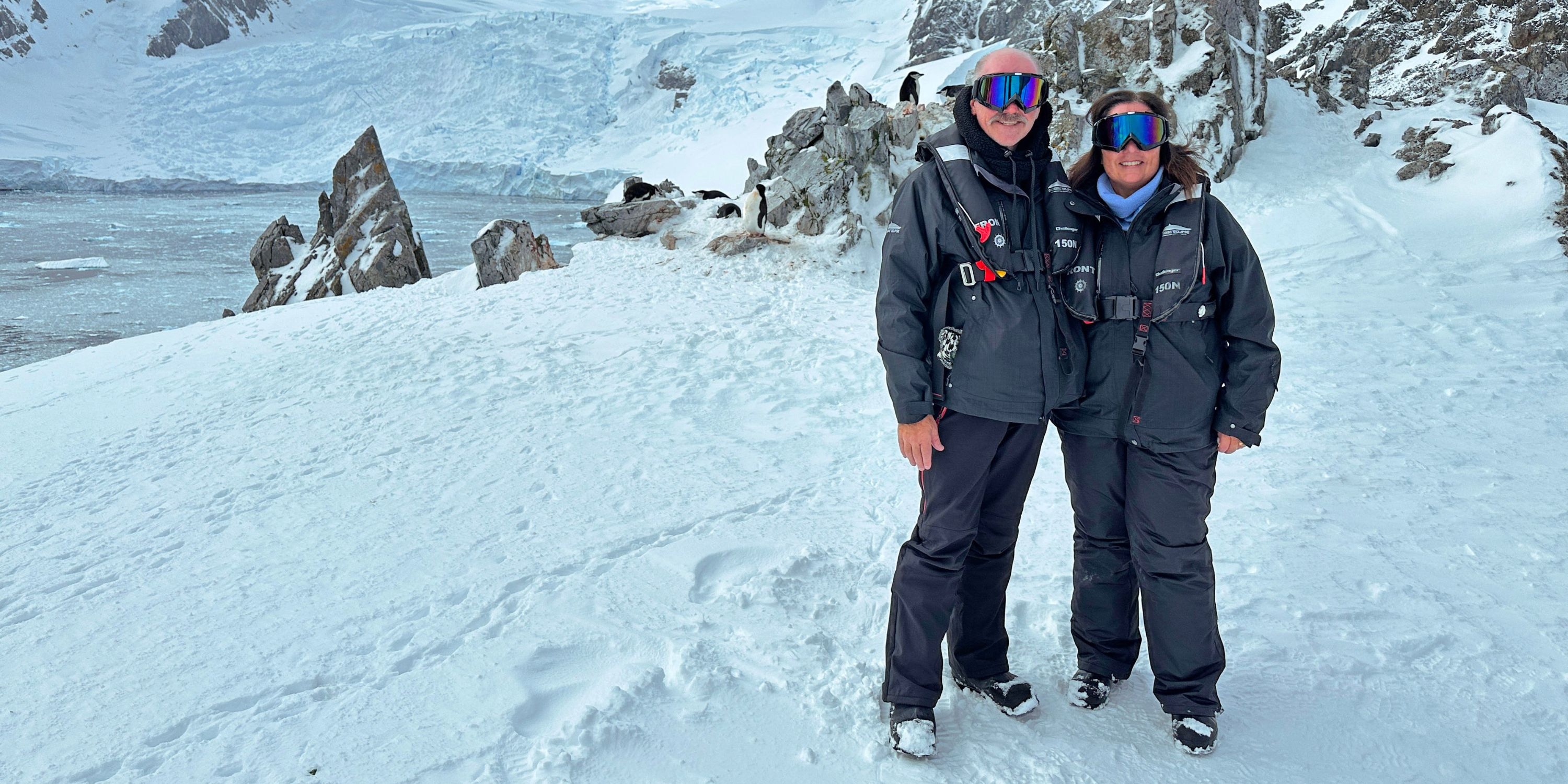
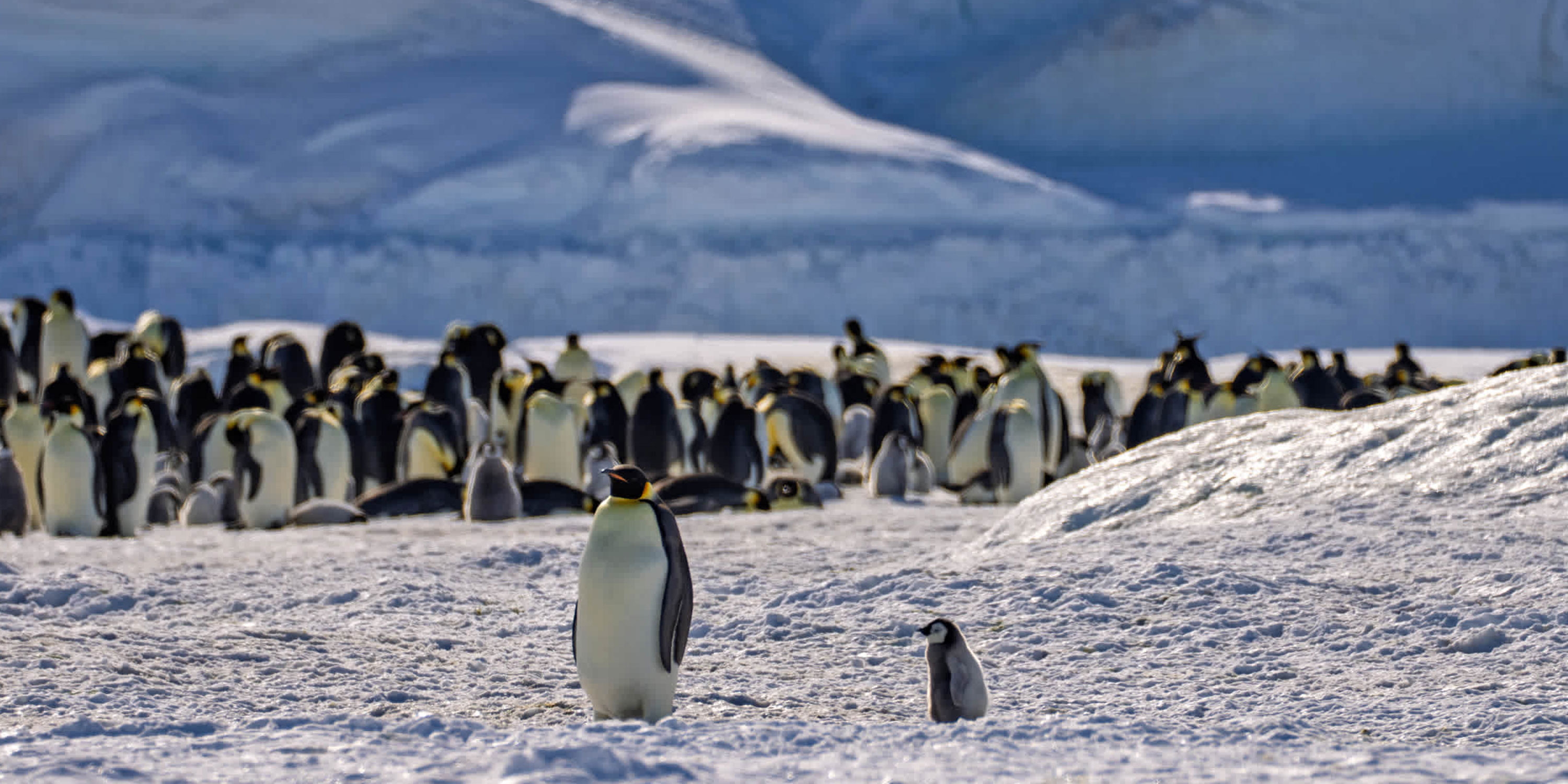
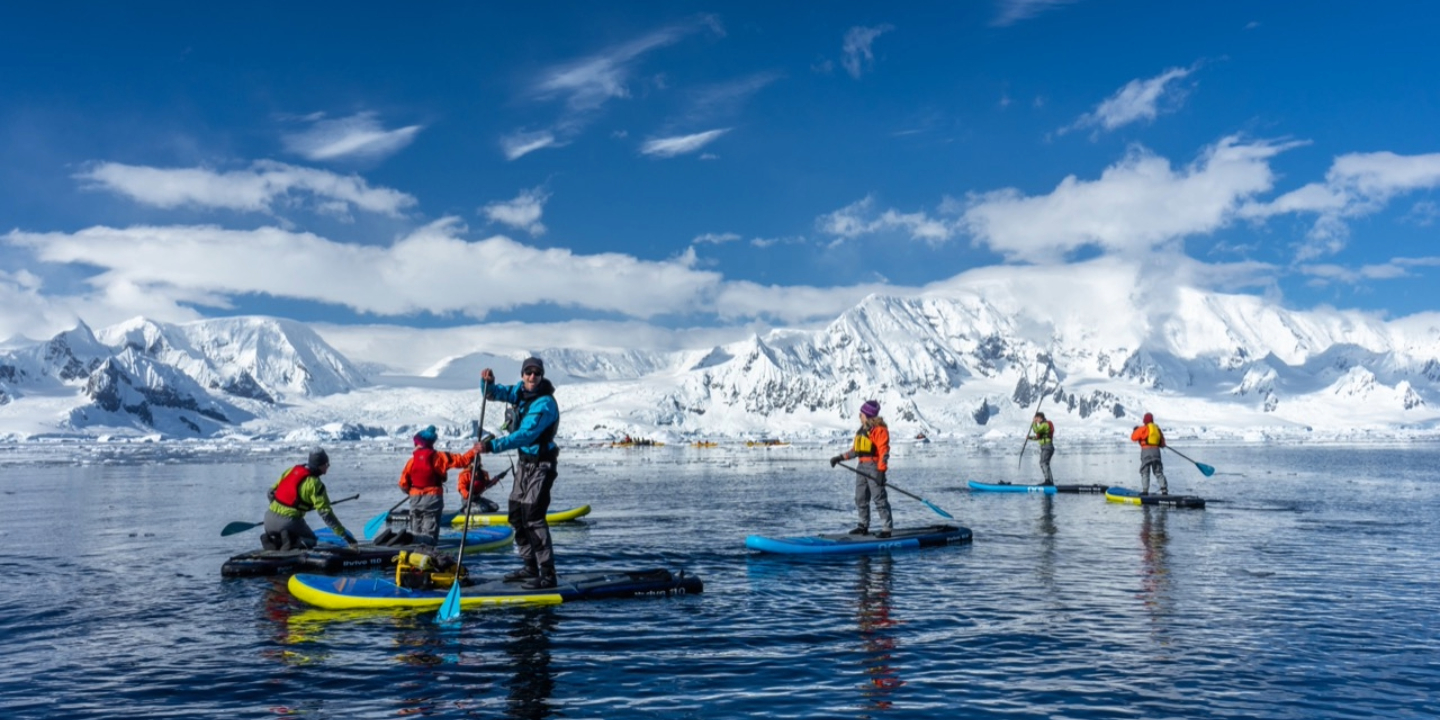
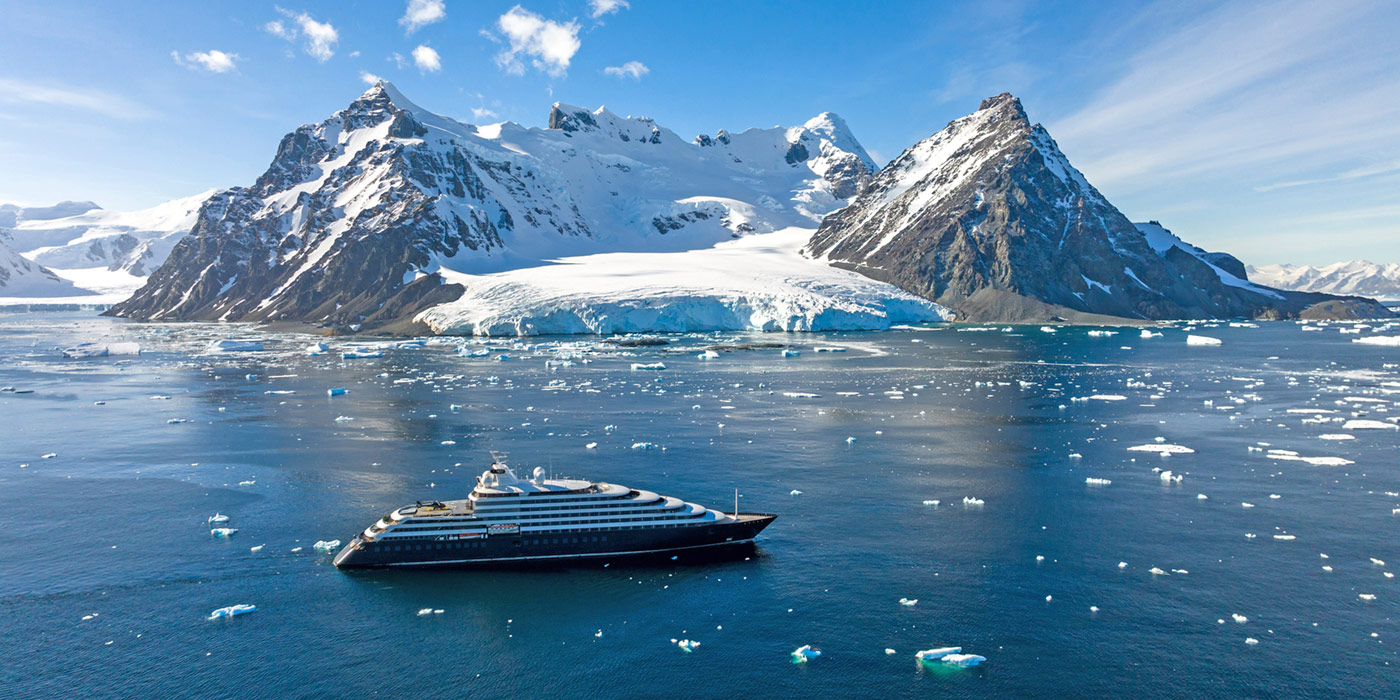
Stay up to date and be inspired
Yes, please keep me updated with the latest special offers, travel inspiration, product updates and event invites.





























